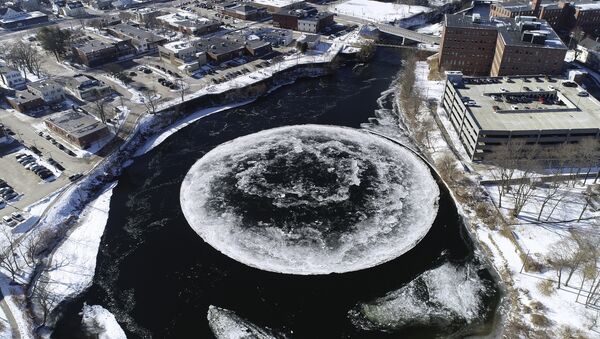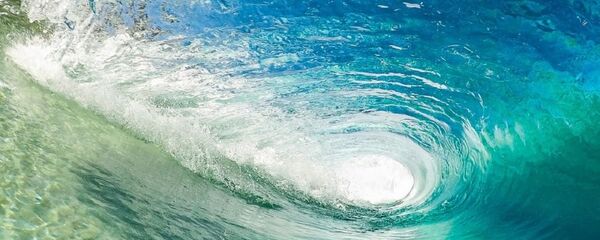Officials of Westbrook, Maine, were alerted to the natural phenomenon on Monday after Rob Mitchell, the owner of an Ash Street office building, spotted the unusual sight when looking out toward the nearby river walkway.
"There were ducks sitting on it," Mitchell told the Portland Press Herald. "The ducks were rotating on this big Lazy Susan. It was a big duck-go-round."
— Taylor Gleason (@TaylorGWGME) January 15, 2019
After Mitchell reached out to the city, it wasn't too long before city employee Tina Radel, who is a licensed drone operator, took a drive out to the river to conduct her own inspection of the oddity. She later whipped out her drone to snap a few pictures and record some videos.
"It's pretty wild to look at," Doug Bertlesman, a web developer who works in the area told the Herald. "It's certainly not every day that you can watch a spinning circle of ice in the river."
After Radel's content was shared on the city's Facebook page, dozens of residents began making their own trips out to the area, and offering their own theories about the formation of the disk.
"It's where the aliens landed," one commenter wrote as another netizen suggested it looked like the moon. Another user, recalling the city's 2016 reporting of a mysterious snake that reportedly ate a beaver, remarked that it was just the work of "Wessie."
— City Of Westbrook ME (@CityofWestbrook) January 15, 2019
Alas, this spinning disk is neither the creation of Wessie nor that of sneaky aliens trying to kick their crop circle skills up a notch by working with ice.
According to NBC10 Boston meteorologist Tim Kelley, the phenomenon was caused by the formation of eddies, which are small pockets of moving water that break off from a main body of water.
"The flow near the center of the ice mass is nearly stationary," Kelley explained. "… allowing the water to freeze more readily, while water moves faster around the edges, generating the spin."
Steven Daly of the Army Corps of Engineers' Cold Regions Research and Engineering Laboratory told The New York Times that rotating ice disks don't occur frequently in the US, with reports popping up once or twice a year. However, they don't tend to be as large as the one discovered in Westbrook.


